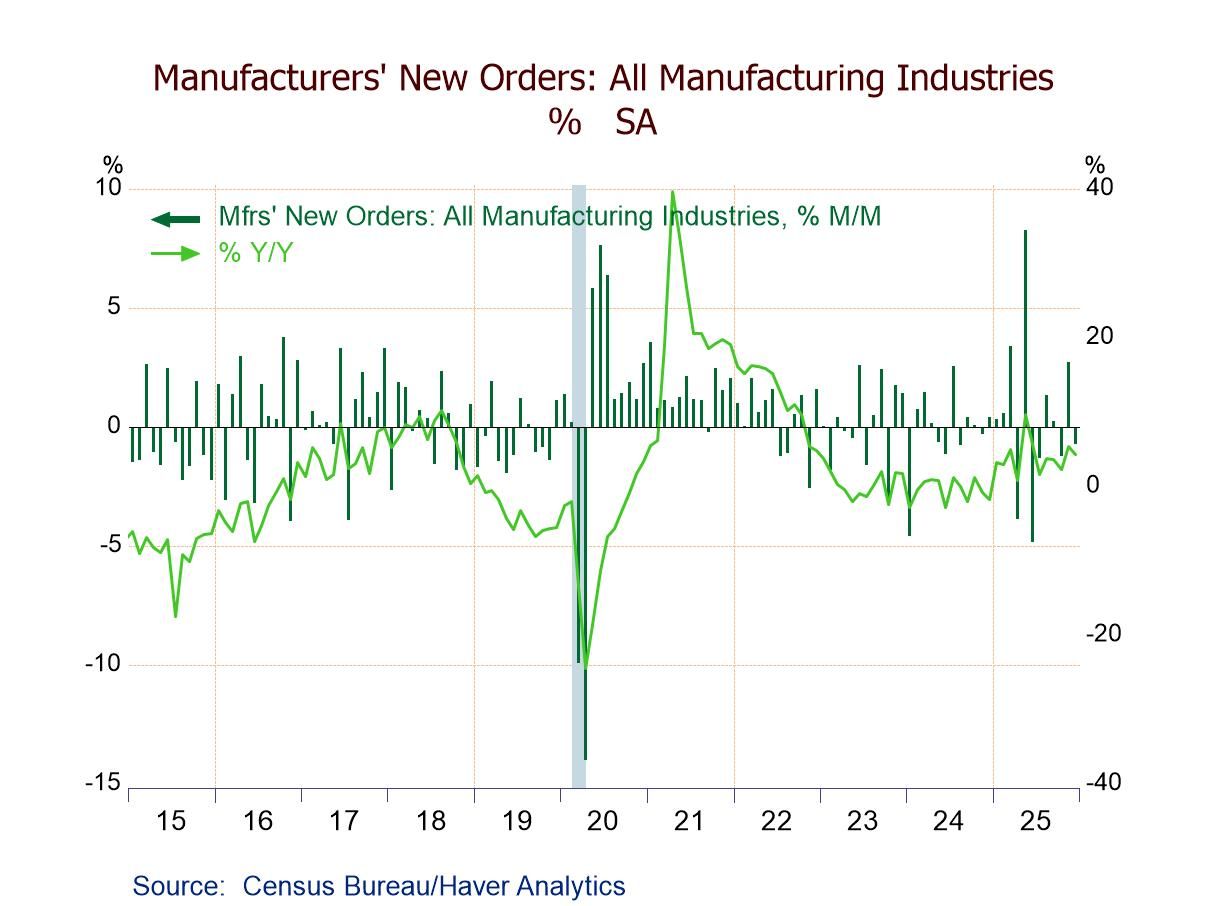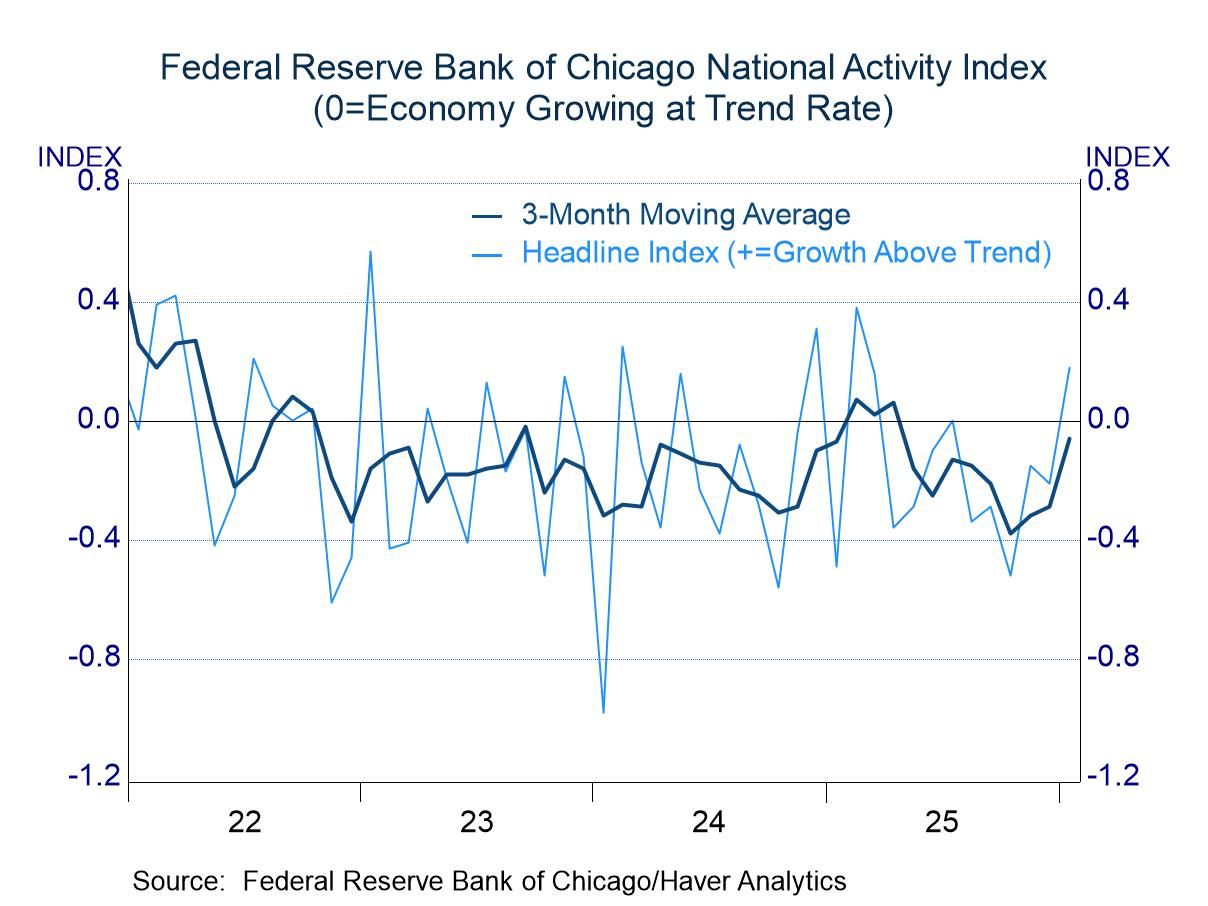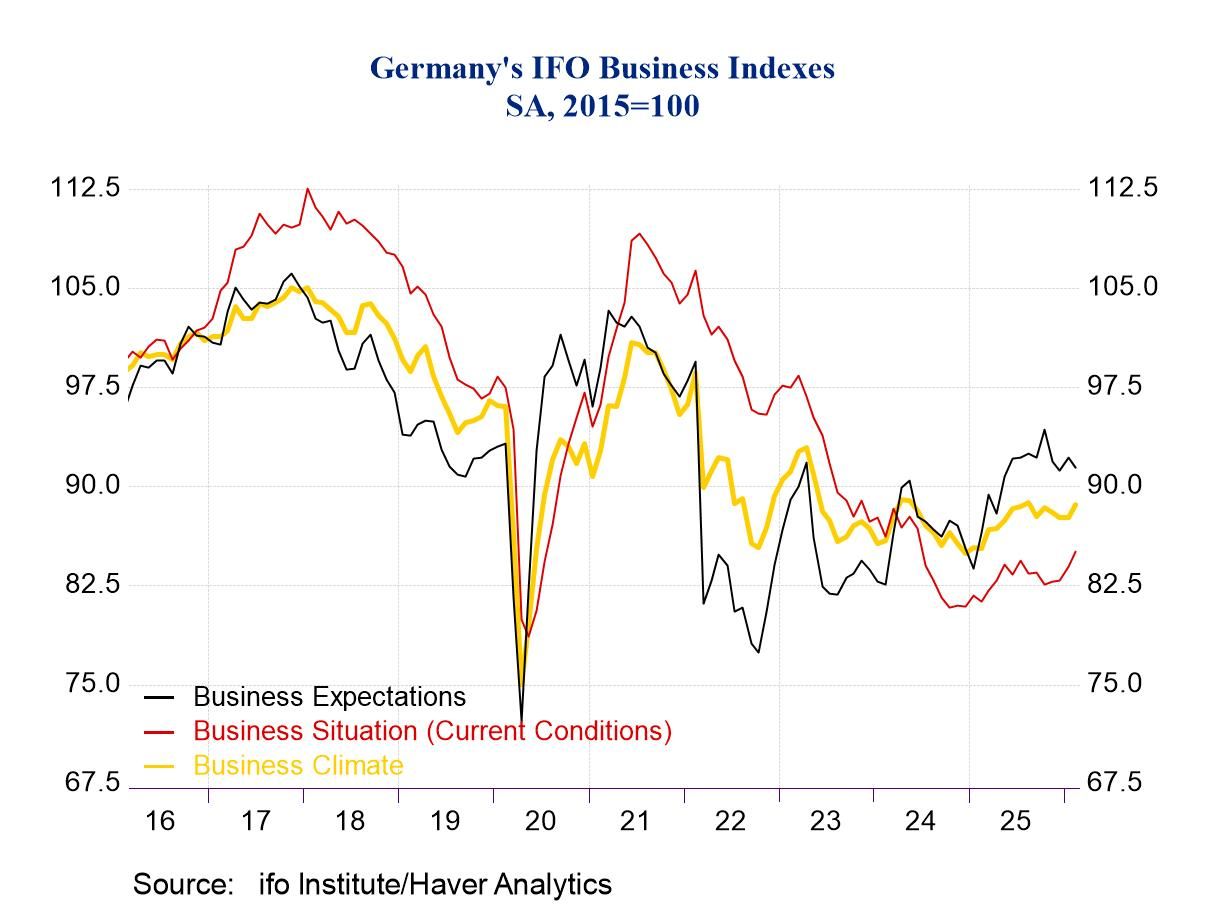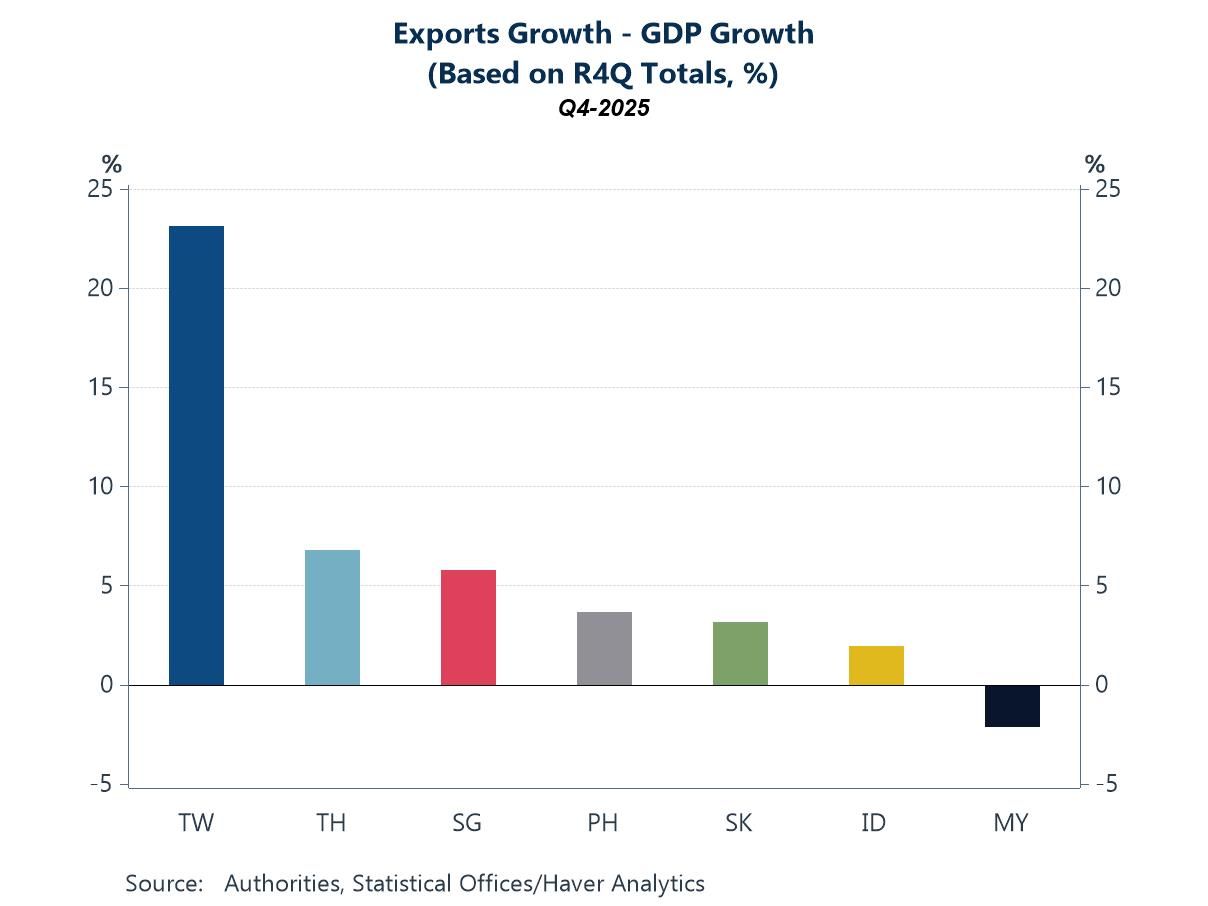 Global| Apr 17 2006
Global| Apr 17 2006Industrial Production Rose Further
by:Tom Moeller
|in:Economy in Brief
Summary
During March, overall industrial output rose another 0.6% and added to a downwardly revised 0.5% February increase. Consensus expectations had been for a 0.5% gain. Factory sector output rose 0.5% after a revised 0.2% February decline [...]
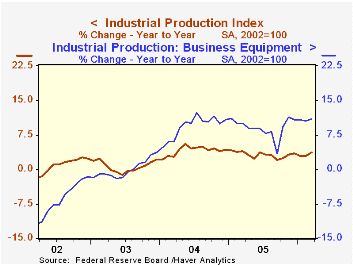
During March, overall industrial output rose another 0.6% and added to a downwardly revised 0.5% February increase. Consensus expectations had been for a 0.5% gain.
Factory sector output rose 0.5% after a revised 0.2% February decline that was initially reported as no change.
Motor vehicles & parts production rebounded 1.5% (2.7% y/y) after a 1.1% February drop. Excluding motor vehicles, factory output increased 0.4% (5.0% y/y) but a slight increase initially reported for February was revised to a slight 0.1% decline. 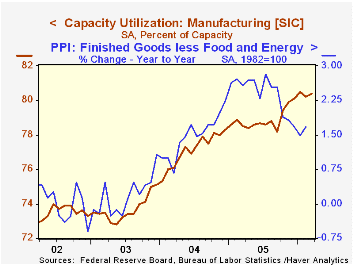
Output of computers, communication equipment and semiconductors increased 2.7% (23.2% y/y) as output of communications equipment rose 2.2% (29.6% y/y) and semiconductor production surged 3.5% (24.0% y/y). Factory output excluding both autos & high tech rose 0.3% (3.7% y/y) after the revised 0.1% February decline. For 1Q, this measure of output rose 5.2% (AR).
Output of primary metals was unchanged (3.4% y/y) but machinery output rebounded 1.4% (5.2%) following two consecutive months of sharp decline. Electrical equipment & appliance output likewise rebound from a February drop with a 0.7% increase (9.4% y/y). Output of furniture & related products rose but the 0.4% (-1.2% y/y) increase followed a 0.6% rise during February that was half the gain initially reported.
Nondurables output recovered 0.3% (1.8% y/y) following a 0.3% February drop. Apparel output surged 2.1% (6.3% y/y).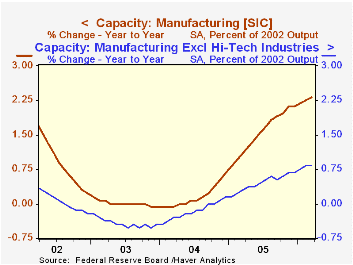
Total capacity utilization rose to 81.3% but utilization during February was revised lower. Factory sector utilization rose to 80.4% from 80.2% the prior month. During the last twenty years there has been a 36% correlation between the level of factory sector utilization and the y/y change in "core" producer prices. There also has been a 37% correlation with the change in core consumer prices.
Industrial capacity grew 0.1% (1.9% y/y) and the annual rate of growth is up from 1.3% last year and 0.3% during 2004. Factor sector capacity grew 0.2% (2.4% y/y) compared to 1.6% growth last year and 0.2% growth during 2004. Much of that growth has been in the high tech sector. Excluding high tech, factory sector capacity is up just 0.8% versus a 0.5% gain last year and a 0.2% decline the year prior.
Productivity Growth: Causes and Consequences from the Federal Reserve Bank of San Francisco is available here.
A Leaner, More Skilled U.S. Manufacturing Workforce from the Federal Reserve Bank of New York can be found here.
| Production & Capacity | Mar | Feb | Y/Y | 2005 | 2004 | 2003 |
|---|---|---|---|---|---|---|
| Total Industrial Production | 0.6% | 0.5% | 3.6% | 3.2% | 4.1% | 0.6% |
| Manufacturing | 0.5% | -0.2% | 4.8% | 3.9% | 4.8% | 0.5% |
| Consumer Goods | 0.4% | 0.7% | 1.8% | 2.1% | 2.1% | 1.0% |
| Business Equipment | 0.8% | 0.2% | 10.8% | 9.1% | 9.3% | 0.0% |
| Capacity Utilization | 81.3% | 81.0% | 79.9% (3/05) | 80.1% | 78.6% | 75.7% |
Tom Moeller
AuthorMore in Author Profile »Prior to joining Haver Analytics in 2000, Mr. Moeller worked as the Economist at Chancellor Capital Management from 1985 to 1999. There, he developed comprehensive economic forecasts and interpreted economic data for equity and fixed income portfolio managers. Also at Chancellor, Mr. Moeller worked as an equity analyst and was responsible for researching and rating companies in the economically sensitive automobile and housing industries for investment in Chancellor’s equity portfolio. Prior to joining Chancellor, Mr. Moeller was an Economist at Citibank from 1979 to 1984. He also analyzed pricing behavior in the metals industry for the Council on Wage and Price Stability in Washington, D.C. In 1999, Mr. Moeller received the award for most accurate forecast from the Forecasters' Club of New York. From 1990 to 1992 he was President of the New York Association for Business Economists. Mr. Moeller earned an M.B.A. in Finance from Fordham University, where he graduated in 1987. He holds a Bachelor of Arts in Economics from George Washington University.



